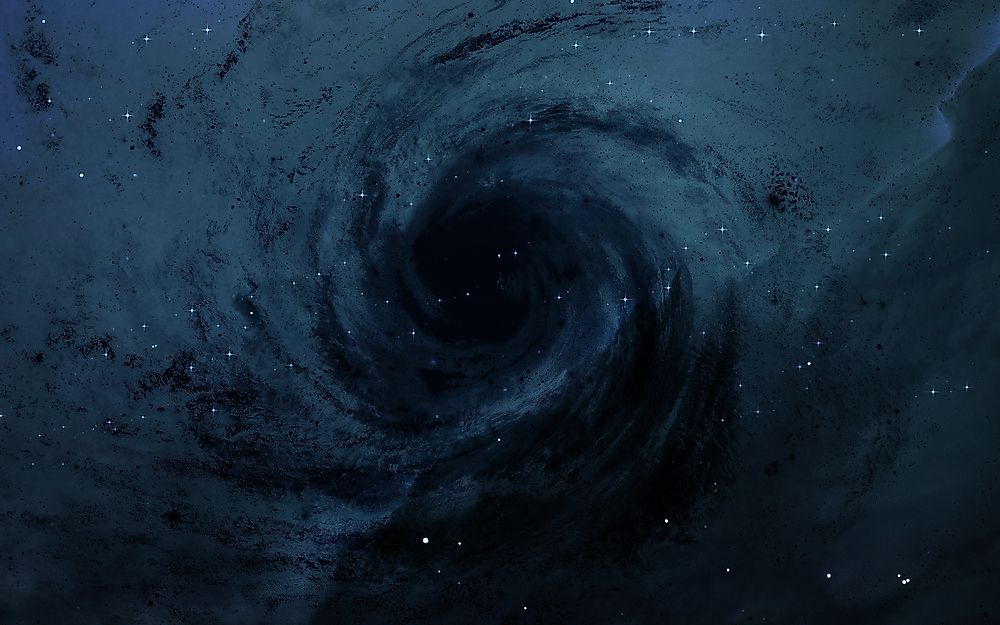

Black holes can (and some do) contain very large amounts of matter -millions or billions of times the mass of the sun -but may be formed by even a small amount of matter sufficiently compressed. If the Earth were compacted so that it had the same mass, but half its present radius, the force of gravity at its surface would be four times as great as it is now if it were compacted further, a density would eventually be reached at which its constituent subatomic particles would be unable to support their own weight and would collapse to a state of (theoretically) infinite density, producing a black hole.

The more matter is contained in an object and the smaller its volume -in other words, the higher its density -the more intense the gravitational field at its surface will be. The maximum intensity of a spherical object ’s gravitational field is a function both of the amount of matter it contains and of its volume. Scientists think that such a black hole may help to support the theory that a black hole exists in the center of the Milky Way galaxy.

In 2005, a black hole was discovered to be traveling at twice the escape velocity of the galaxy as it exited the Milky Way. Scientists believe that its discovery helps to confirm that gigantic black holes were created early in the formation of the universe. A black hole was discovered in June of 2004. In 2004, astronomers, while searching quasars, found over 30 possible black holes. Bodies known as black holes produce such gravitational fields. A sufficiently intense gravitational field can prevent the escape not only of matter, but even of light.


 0 kommentar(er)
0 kommentar(er)
